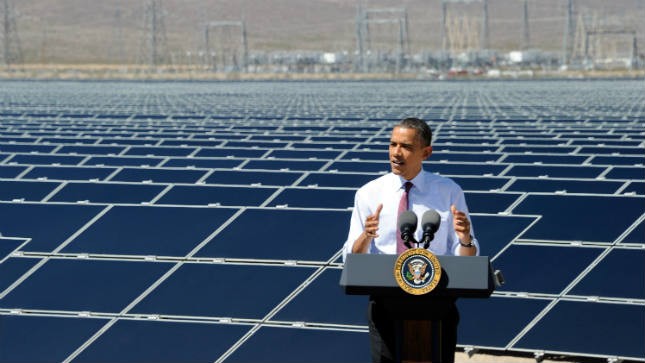If we don’t extinct ourselves in the short run, it will seem almost beyond imagination one day, and hopefully one day soon, that we ever stubbornly continued to get the majority of our energy from sources other than the sun. Children born into a solar world won’t understand why we didn’t sooner heavily invest in R&D try to exploit this clean, natural abundance.
In Ed Crooks and Lucy Hornby’s FT Magazine piece, “Sunshine Revolution,” the writers look at, among other things, Las Vegas as an “unlikely hotbed of radicalism” for U.S. solar conversion, a shift driven more by lower costs than the bigger picture. The opening:
The suburbs of Las Vegas do not look like the cradle of a revolution. Golden stucco-clad houses stretch for street after identical street, interspersed with gated communities with names such as Spanish Oaks and Rancho Bel Air. The sky is the deepest blue, the desert air is clear and the distant mountains are beautiful. The only sounds are the buzz of a gardener’s hedge trimmer and a squeaking baby buggy pushed by a power-walking mother. The bright lights of Sin City seem a very long way away.
Yet these quiet streets are being changed by a movement that is gathering momentum across America and around the world, challenging one of the most fundamental of economic relationships: the way we use and pay for energy. There are now more than 7,000 homes in Nevada fitted with solar panels to generate their own electricity, and the number is rising fast. Just five years ago, residential solar power was still a niche product for the homeowner with a fat wallet and a bleeding heart. Not any more. Technology, politics and finance have aligned to move it into the mainstream. Solar power has become the fastest-growing energy source in the US.
For decades the electricity industry has been a cautious and conservative business, but the plunging prices of solar panels, down by about two-thirds in the past six years, have woken it up with a bang. Dynamic rooftop solar power companies have entered the market, in the most radical change to electricity supplies since the industry was born in the 19th century. It has been described as the equivalent of the mobile revolution in telephony, or the PC in computing.•
Tags: Ed Crooks, Lucy Hornby

